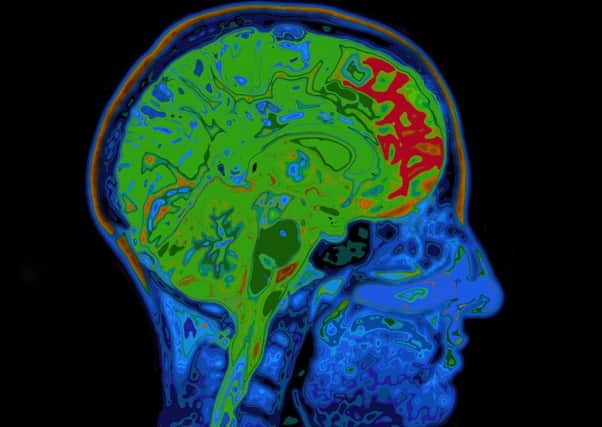Could this health supplement help stave off dementia?


The brain is energy hungry using between 20 to 30 per cent of all the body’s needs.
But during the course of normal ageing, or because of neurodegenerative diseases, mental disorders or physiological stress, the supply of sugars to the brain may be reduced.
Advertisement
Hide AdAdvertisement
Hide AdThis leads to a reduction in the brain’s energy reserves, which in turn can lead to cognitive decline and loss of memory.
But experiments in mice found the brain’s energy reserves can be increased with a daily dose of pyruvate over the course of months.
The body produces pyruvate when it breaks down sugar and is available as a supplement used for weight loss, high cholesterol, cataracts, cancer, and improving athletic performance.
It is sold in health food shops and as well as re-energising the brain, it also gave the mice an energy boost.
Advertisement
Hide AdAdvertisement
Hide AdIf it works in humans, the elderly could be given daily supplements not only to ward off cognitive decline but also help them stay active.
Professor of Molecular Neurobiology Heikki Tanila of the University of Eastern Finland said: “In our new study, we show that long-term dietary supplementation with pyruvate increases the energy reserves in the brain, at least in mice, in the form of the molecules glycogen, creatine and lactate.
“The mice became more energetic and increased their explorative activity.
“It appears that these behavioural changes are directly due to the effect of pyruvate on brain function, since we didn’t find that these mice had developed greater muscle force or endurance.
Advertisement
Hide AdAdvertisement
Hide Ad“Pyruvate supplementation may prove beneficial as an activating treatment for the elderly and in therapies for alleviating cognitive decline due to ageing, neurodegenerative disease, or mental disorders.
“It is well tolerated and warrants further studies in humans.”
The study published in the journal Frontiers in Ageing Neuroscience found chronic supplementation with pyruvate facilitated the spatial learning of middle-aged - six to a year old - mice.
It also made them more interested in the odour of unfamiliar mice, and stimulated them to perform so-called “rearing”, an exploratory behaviour where mice stand on their hind legs and investigate their surroundings.
Advertisement
Hide AdAdvertisement
Hide AdThe dose necessary to achieve these effects was about 800 mg pyruvate per day - which corresponds to about 10 g per day in humans given in their food over a course of two-and-a-half to six months.
A single large dose of pyruvate injected directly into the blood stream had no detectable effect.
Interestingly, the positive response to dietary supplementation with pyruvate was also found in a strain of transgenic mice called APPswe/PS1dE9, often used as an animal model for the study of Alzheimer’s disease.
These mice exhibit many of the same symptoms as people with Alzheimer’s, such as the deposition of protein plaques in the brain, neurodegeneration, and cognitive decline.
Researchers suggested pyruvate might also benefit people with neurodegenerative disorders such as Alzheimer’s and Parkinson’s.